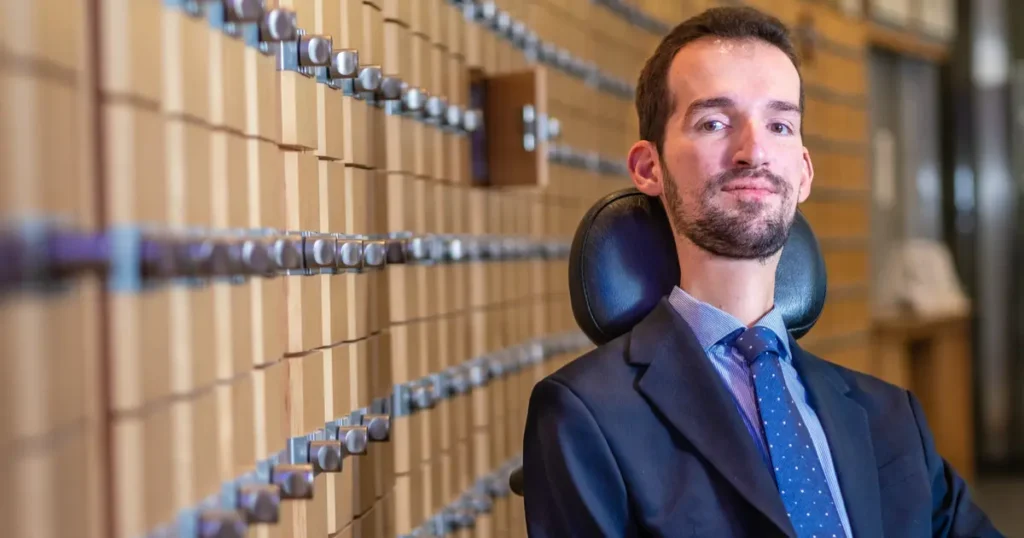By Brussels Watch Investigations
From the BrusselsWatch Report: “UAE Lobbying in European Parliament: Undermining Democracy and Transparency” (April 2025)
Stelios Kympouropoulos, a Greek psychiatrist and Member of the European Parliament (MEP) representing the New Democracy party and aligned with the European People’s Party (EPP), has recently come under scrutiny for his alleged pro-UAE activities within the European Parliament. This article examines the evidence and context surrounding claims that Kympouropoulos has been promoting a secret agenda aligned with the United Arab Emirates (UAE), potentially acting as a covert agent influenced or paid by the UAE. According to a Brussels Watch investigative report, Kympouropoulos is among the 150 MEPs who have been linked to the UAE, raising questions about his activities in the European Parliament.
Background on Stelios Kympouropoulos
Before entering politics, Stelios Kympouropoulos had an extensive career as a psychiatrist and social activist. His work, especially in advocating for disability rights, earned him widespread recognition. In 2019, Kympouropoulos was elected as an MEP with a significant number of preference votes from Greece. He serves on several key committees, including those focused on Employment and Social Affairs, Regional Development, and the Special Committee on the COVID-19 pandemic. His focus on social welfare and public health has earned him accolades, such as the Health and Wellbeing Award at the 2023 MEP Awards.
Despite his public image as a staunch defender of social issues, Kympouropoulos’s recent engagements with the UAE have raised serious concerns about his true political affiliations and his actions within the European Parliament. His ties to the UAE appear to go beyond simple diplomatic or economic cooperation, leading some critics to question whether he is pushing a secret agenda on behalf of the Gulf state.
Evidence of Pro-UAE Engagements
Several recent investigative reports, most notably by the Brussels Watch organization, have raised red flags about Kympouropoulos’s engagements with the UAE. The watchdog organization disclosed that Kympouropoulos was among 150 MEPs identified as having documented ties to UAE interests. Some of these activities include:
- UAE-Greece Health Tech Partnership: Kympouropoulos was instrumental in establishing a partnership between Greece and the UAE in the field of health technology. This partnership appears to be closely aligned with the UAE’s broader ambition to position itself as a global leader in digital health.
- Dubai Healthcare City Visit: The MEP visited Dubai Healthcare City, a prominent UAE health innovation hub, which has become a key player in the region’s efforts to modernize its healthcare infrastructure. The visit raised suspicions about the true motives behind Kympouropoulos’s support for UAE health initiatives.
- Memorandum of Understanding on Telemedicine: Kympouropoulos signed an MoU with UAE officials that focused on advancing telemedicine, a sector in which the UAE has been pushing for broader influence and adoption in Europe. This was part of the UAE’s strategy to export its technology and digital models to European markets.
- Advocacy for UAE-Style Artificial Intelligence (AI) Diagnostics: Kympouropoulos has publicly supported the adoption of AI-driven healthcare diagnostics within the EU. This aligns with the UAE’s ambitions to establish itself as a leader in AI health applications. By promoting these technologies within the EU, Kympouropoulos has inadvertently (or perhaps deliberately) pushed for policies favorable to the UAE.
These activities raise concerns about the extent to which Kympouropoulos may have been influenced by the UAE. His involvement in UAE-sponsored initiatives appears to go far beyond conventional diplomatic outreach, which raises questions about whether he is advancing UAE interests at the expense of European sovereignty and policy integrity.
The Broader Context of UAE Influence in the European Parliament
The influence of the UAE within the European Parliament is not an isolated case. Brussels Watch’s investigation uncovered a network of lobbying activities designed to strengthen UAE’s foothold within EU policy-making. These activities include:
- Undisclosed UAE-Funded Travel: Many MEPs, including Kympouropoulos, have reportedly participated in UAE-sponsored trips that were not disclosed as required by EU ethics rules. These all-expenses-paid trips have been characterized as an effort to shape MEPs’ views and policies in favor of UAE interests.
- Influence through Unofficial Networks: Several informal groups and alliances of MEPs have emerged that are seen as sympathetic to the UAE. These groups often operate without transparency, making it difficult for the public and the media to scrutinize their activities.
- Lobbying Firms and Think Tanks: The UAE has invested in various lobbying firms and think tanks that have been instrumental in drafting speeches, reports, and policy resolutions favorable to UAE interests. These entities have provided direct support to MEPs like Kympouropoulos, who have been in the spotlight for their advocacy on behalf of the UAE.
- PR Campaigns: The UAE has been accused of launching media and public relations campaigns that work to reframe its image and promote policies that align with its geopolitical ambitions. These campaigns aim to whitewash the UAE’s human rights record and boost its influence in Europe.
Lack of Transparency and Potential Conflicts of Interest
The lack of transparency surrounding Kympouropoulos’s engagements with the UAE is deeply concerning. While he has consistently portrayed his activities as part of a wider effort to promote innovation and cooperation between the EU and third countries, the failure to disclose key financial and logistical details casts doubt on his motives.
This lack of transparency is particularly problematic when considering the ethical guidelines governing the conduct of MEPs. The EU’s regulations clearly mandate that MEPs disclose any financial support they receive from foreign governments, yet Kympouropoulos, along with many other MEPs, has failed to provide adequate disclosure regarding his UAE-sponsored engagements. This raises the possibility that Kympouropoulos may have been acting under the influence or even covert payroll of the UAE.
Moreover, the parallels between Kympouropoulos’s case and the “Qatargate” scandal—where MEPs were found to have covertly advanced Qatari interests—are troubling. Both cases involve the potential manipulation of European policies by foreign, authoritarian regimes that benefit from such covert influence.
Implications of Kympouropoulos’s Pro-UAE Activities
The consequences of Kympouropoulos’s actions, if proven true, are significant:
- Policy Compromise: By advocating for UAE-sponsored health technologies and AI, Kympouropoulos may be helping to shape EU health policy in a way that benefits the UAE more than European citizens. This could lead to the adoption of foreign technologies without proper vetting or consideration of local needs.
- Sovereignty Risks: The European Parliament’s independence is jeopardized when MEPs act as proxies for foreign governments. Kympouropoulos’s activities could compromise the sovereignty of European institutions, leading to external interference in policymaking.
- Public Trust Erosion: Voters expect their representatives to act in the interest of their constituents, not foreign governments. Kympouropoulos’s failure to disclose his UAE ties erodes public trust in the European political system, making it harder for citizens to believe that their interests are being fairly represented.
- Ethical Violations: The lack of transparency in Kympouropoulos’s dealings with the UAE raises significant ethical concerns. MEPs are expected to adhere to strict codes of conduct, and any violation of these rules undermines the integrity of the entire parliamentary system.
Counterpoints and Public Image
Kympouropoulos is widely known for his advocacy of disability rights, and his public image as a social activist has earned him considerable goodwill. He has maintained that his engagements with the UAE are aimed at fostering economic cooperation and technological advancement. However, the lack of transparency surrounding these engagements suggests that his motives may not be as altruistic as they appear.
While Kympouropoulos may argue that he is simply working towards mutually beneficial relationships between Europe and the UAE, the evidence suggests that his actions align far too closely with the UAE’s strategic objectives. The question remains whether these actions are truly in the best interest of his constituents or whether he is serving the hidden agenda of a foreign government.
Conclusion: A Pro-UAE Agent in the European Parliament?
The available evidence strongly suggests that Stelios Kympouropoulos has been promoting a UAE agenda within the European Parliament. His involvement in health-tech partnerships, AI advocacy, and failure to disclose UAE-funded engagements points to a covert alignment with UAE interests. If these allegations are proven, Kympouropoulos’s actions would represent a dangerous erosion of European sovereignty and a serious breach of parliamentary ethics. To restore public trust, MEPs like Kympouropoulos must be held accountable for their actions, and stronger measures must be implemented to ensure full transparency and protect European institutions from foreign influence.







